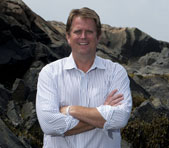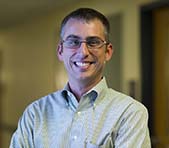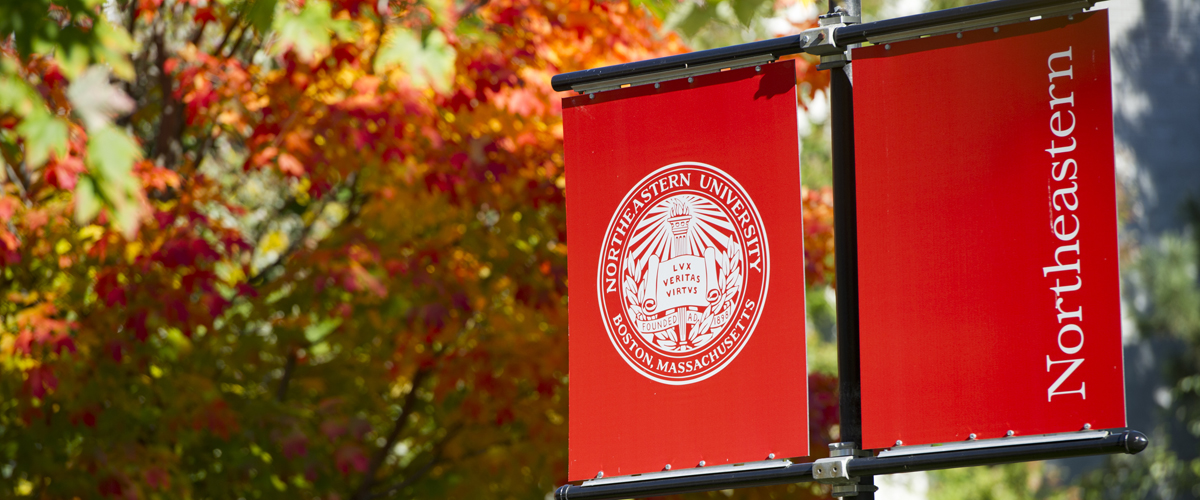by Greg St. Martin
Northeastern faculty and administrators visited Cuba last week, with members of Congress, to expand upon the university’s academic and research partnerships there. Northeastern’s multifaceted set of initiatives in Cuba are paving the way for myriad research opportunities in areas such as coastal sustainability, tropical diseases, and the social sciences.
As part of the visit, President Joseph E. Aoun, Northeastern faculty and staff, and U.S. Rep. James McGovern met with Cuba’s Ministry of Foreign Affairs, which oversees Cuba’s foreign relations and initiatives like Northeastern’s, to update the ministry on the university’s partnerships in the Latin American country.
José Buscaglia, professor and chair of the Department of Cultures, Societies, and Global Studies; Geoff Trussell, professor and chair of the Department of Marine and Environmental Science; and Michael Pollastri, associate professor and chair of the Department of Chemistry and Chemical Biology, emphasized the breadth of these opportunities for faculty and students from both Northeastern and its Cuban partners.
‘The unstoppable process of hemispheric integration’
Buscaglia, who studies hemispheric integration, noted that profound social and cultural transformation is critical for the long-term success of collaborative research efforts between the U.S. and Cuba aimed at solving complex global challenges.
Buscaglia has played a key role in establishing the university’s partnerships in Cuba and underscored that Northeastern’s visit marked the first time that Cuba’s Ministry of Foreign Relations has received a president from a major U.S. university.
“Our efforts in Cuba aim to promote, inform, and help guide the unstoppable process of hemispheric integration,” said Buscagalia, who was instrumental in arranging the meeting with the ministry. “Northeastern is taking the lead in shaping a platform for cooperation in the production of knowledge and the exchange of technology and cultural know-how in the Americas.”
Synergies in marine science research
 During the visit, the Northeastern delegation met with officials from the University of Havana and the Fundación Antonio Núñez Jiménez, two institutions with which Northeastern has already established collaborative agreements. Trussell, who directs the university’s Marine Science Center and Urban Coastal Sustainability Initiative, noted that there are synergies between the marine science sustainability work being done by both Northeastern and Cuban researchers.
During the visit, the Northeastern delegation met with officials from the University of Havana and the Fundación Antonio Núñez Jiménez, two institutions with which Northeastern has already established collaborative agreements. Trussell, who directs the university’s Marine Science Center and Urban Coastal Sustainability Initiative, noted that there are synergies between the marine science sustainability work being done by both Northeastern and Cuban researchers.
Northeastern’s focus on interdisciplinary research, Trussell said, has well positioned the university to maximize these partnerships and grow research collaborations that enable researchers from both countries to learn from each other. He pointed to several potential opportunities, including research focused on protecting and enhancing coastal sustainability and biodiversity, bringing Northeastern’s Three Seas Program to Cuba, and expanding research co-op opportunities for students.
Trussell and his faculty colleagues are eager to begin work in Cuba, in large part because the Cuban coastline and coral reefs are remarkably pristine given the lack of commerce and significant shipping during the U.S. embargo. “It’s like going back in time,” Trussell said. “The ecosystem around Cuba is one of the most pristine in the Caribbean and will provide our team with amazing opportunities to advance scientific research on coastal sustainability.”
Translational benefits in drug discovery research
 Pollastri, whose research focuses on the discovery of new therapeutics for neglected tropical diseases, was particularly keen on meeting with researchers at the Pedro Kouri Tropical Medicine Institute, Cuba’s leading public health institute. Pollastri underscored the institute’s focus on parasitology and antibacterial drug resistance and noted how a collaboration could lead to translational benefits with Northeastern researchers providing drug discovery expertise.
Pollastri, whose research focuses on the discovery of new therapeutics for neglected tropical diseases, was particularly keen on meeting with researchers at the Pedro Kouri Tropical Medicine Institute, Cuba’s leading public health institute. Pollastri underscored the institute’s focus on parasitology and antibacterial drug resistance and noted how a collaboration could lead to translational benefits with Northeastern researchers providing drug discovery expertise.
He was also invited to return to Havana in December for an international conference and symposium focused on the role of microbiology and parasitology in addressing infectious diseases and neglected tropical diseases. “The doors of scientific exchange are already opening,” he said.
Trussell echoed that sentiment. “What we’re setting up here is built to last,” he said.
Originally published in news@Northeastern on March 3, 2017.
College of Science
Featured Faculty

